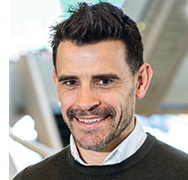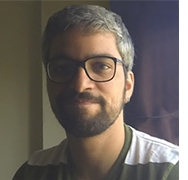
24 February 2021. The 2020-2021 NSHG-PM webinar series continued on 17 March 2021 with a presentation titled “The Landscape of Human Genetic Research 2005-2020” by Paul Franks and Hugo Fitipaldi, Lund University, Sweden. Franks and Fitipaldi were joined for discussion by Ruth Loos of the Icahn School of Medicine at Mount Sinai, and Bjarni Halldorsson, Daniel Gudbjartsson, Patrick Sulem, and Kári Stefánsson from deCODE genetics.
Listen to the webinar
Background
More than 5,000 genome-wide association studies (GWAS) have been published over the past 15 years – an enormous investment of time, funding, and resources. It is worth looking at how that investment is serving the scientists who did the work, and the members of the public who contributed samples and data, as well as their tax dollars.

For the eight most burdensome non-communicable diseases, about 1,700 GWAS papers were published between 2005 and 2020. We have used text mining algorithms and natural language processing to answer three important questions:
1. How well are different ethnicities represented among the GWAS cohorts?
2, Are the cohorts gender balanced, and are male and female scientists equally represented amongst the prime co-authorship positions on the papers?
3. To what extent does co-authorship on GWAS papers reflect the contribution of data?
As you might imagine, this varies across different disease areas; some ethnicities are overrepresented, and others are very poorly represented. For some diseases, cohorts comprise almost equal numbers of men and women. And finally, some countries have made major data contributions, yet in some areas, scientists from these nations are less often the ones leading the papers.
Questions to Discuss
- Why is it that Nordic scientists receive relatively little credit in some disease areas where they have contributed large numbers of data?
- In some areas, there is good gender balance at both the junior and senior authorship levels, but in others the papers are heavily male dominated. Is this a problem, and if so, what can be done about it?
- Is it a problem that genetic discovery is skewed heavily towards European-ancestry cohorts. Could this influence drug discovery and bias the specificity of drugs to certain ethnic groups? Might it also affect the accuracy of genetic prediction algorithms and our understanding of the genetic architecture of disease?
Watch previous webinars.
About the Society
The Nordic Society of Human Genetics and Precision Medicine (NSHG-PM) works with stakeholders at national, regional, and global levels to: 1) establish a Nordic framework for research into the genetics of human diseases, evolution, and population history; 2) accelerate discovery of disease-influencing genes; 3) translate these findings for precision medicine to improve public health; and 4) uphold and promote the highest legal, regulatory, social, and ethical standards.
The benefits of membership for you and your research include reduced registration fees at NSHG-PM conferences, symposia, and select workshops. Equally important, you are helping to support the field as NSHG-PM works to educate and advocate for human genetics and precision medicine research in academic, policy, and public education arenas.


